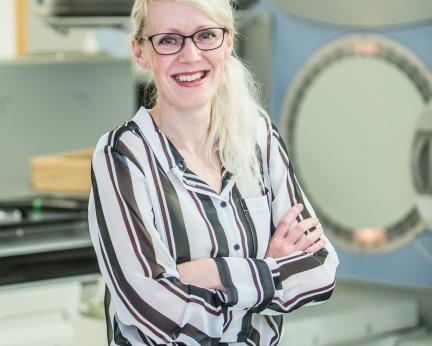As a manager I no longer actually treat patients, but every decision I make is focused on ensuring we are doing all we can to offer the best possible treatments to them.
I love that my job isn’t repetitive. I can be negotiating a multi-million pound equipment contract one minute and cleaning the bottom of a patient’s slippers the next (a long story!). I work with a multi-professional team to set the strategy and vision for our service, communicate to staff about the great work everyone is doing and acknowledging their successes, and ensure all staff have access to education and training opportunities to support them in their roles. Most importantly I have to ensure the service is staffed appropriately, which involves crunching lots of data and understanding how it relates to the number of staff we need and how many patients we’re likely to treat in any one year.
I try to base my decisions on what I would want if our patients were my mum or dad. That was difficult recently when we lost my mum-in-law to lung cancer, but it helped me realise on a personal level what a difference we make to patients.





